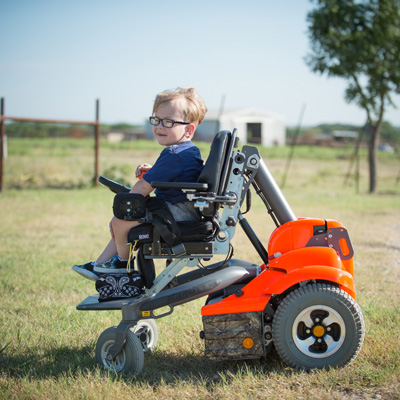Course Overview
Assessing an end user for power mobility can be an intimidating task. Decisions that are made will have an impact on the individual’s quality life, functional mobility, physical well-being, and social interactions. This task can seem even more daunting when it comes to the pediatric end user. Children have the natural desire to move, explore, and learn. Research has shown that there is a strong correlation between self-initiated mobility and the development of visual, cognitive, social, language, and perceptual skills.
2 Contact hour(s)
On-site or Live Stream Lecture
Intermediate Level Course

What You Will Learn
This course will discuss the characteristics and decision-making process for alternative drive control devices, as well as the special considerations on early power mobility intervention.
-
Confidently Assess Patient Needs
You'll learn how to examine and understand your pediatric patients' unique mobility needs and how to connect them with the assistive technologies they need for optimal health outcomes.
-
Understand the Impact of Mobility
Learn the links between self-initiated mobility and the development of a child's visual, social, language, perceptual, and cognitive skills.
-
Effective Training Tools
Learn how to expertly assess and train children on how to use the specific drive control, mobility, and seating & positioning technologies they'll need to embrace life to their fullest.
-
Work with Like-minded Experts
Learn and work alongside some of the best and brightest in the industry who share your unquenchable passion for pediatric mobility and patient care.
AOTA CEUs
0.2 AOTA CEU(s)
Contact Hours
2 Contact Hour(S)
Who is this program for?
Occupational Therapists
Occupational Therapy Assistants
Physical Therapists
Physical Therapist Assistants
Assistive Technology Professionals
Medical Suppliers & Providers
Complex Rehabilitation Professionals
AOTA Classification Code(s)
Category: OT Service Delivery
Level
Intermediate
Instructional Method
On-site Lecture or Live Stream Lecture, Discussion, Clinical Applications, and Demonstration
In Partnership with

Are you ready to improve your level of patient care and knowledge?
We believe that education is the first and most important step in helping qualified medical professionals elevate their care practice and provide better outcomes for their patients.
Register Now
